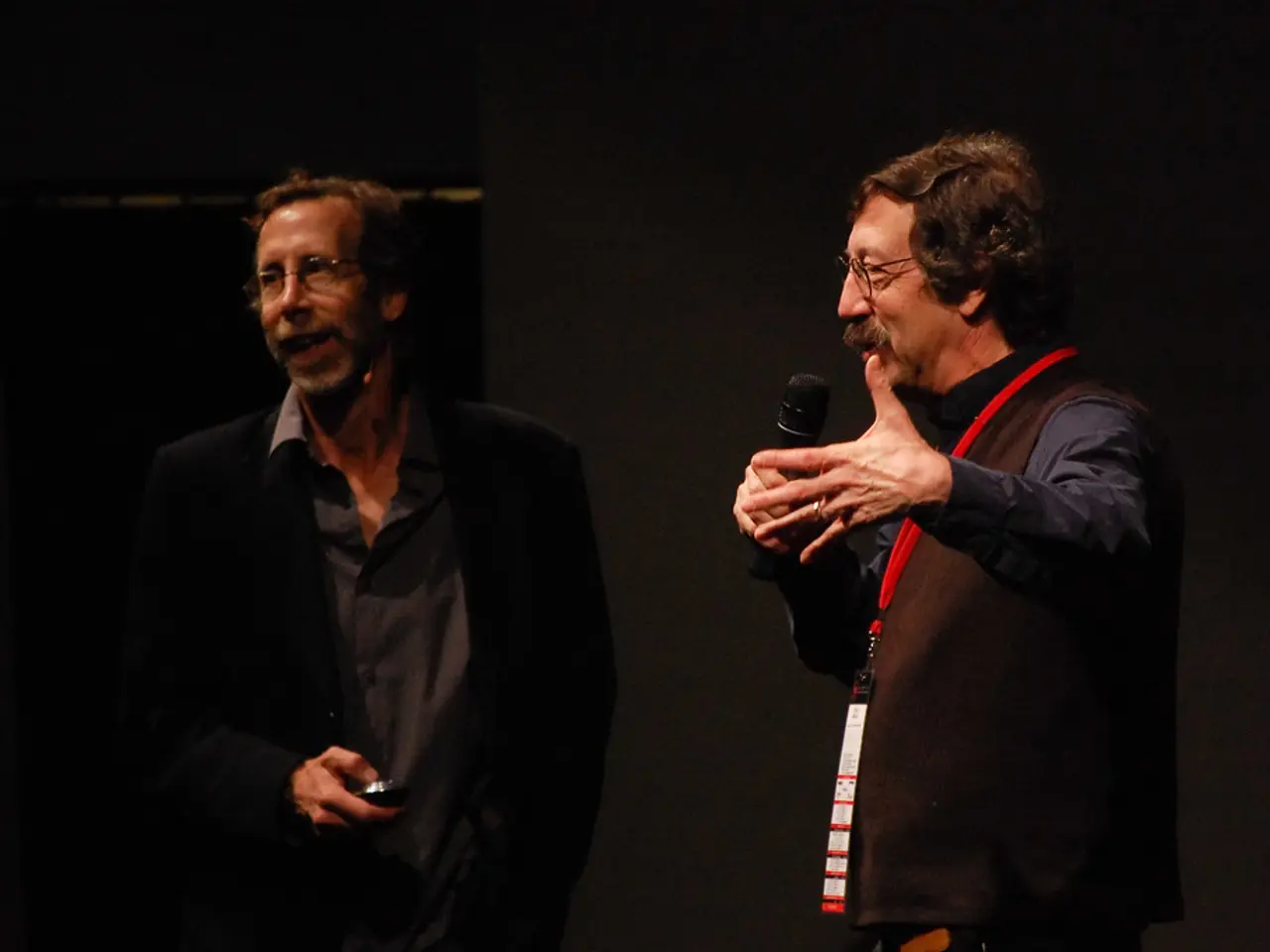Maratha Minister Challenges Lack of Marathi Call to Prayer, Draws Criticism from Opponents
In a move that has ignited a heated debate, Maharashtra Minister Nitesh Rane has proposed teaching Marathi in madrasas instead of Urdu. This suggestion, made amidst a language row in Maharashtra, has been met with strong opposition and political criticism.
Historically, madrasas have been educational institutions primarily focused on Islamic studies, with Urdu often being the primary language of instruction. However, there is no significant historical precedent for teaching Marathi in madrasas, as the focus has traditionally been on religious education and the use of languages like Urdu and Arabic.
Minister Rane's comments came as he criticized the Congress for starting Marathi schools, arguing that instead of separate schools, Marathi should be taught in madrasas to ensure "real education" occurs there. His remarks have been labeled as divisive and provocative by opposition parties, who have defended madrasas as institutions that teach love and loyalty to the country.
Opposition leaders, including AIMIM leader Waris Pathan and Congress leader Amin Patel, have criticized Rane's comments. Patel stated that English, Hindi, and in some institutions, Marathi are already taught in madrasas. He also mentioned that the Azaan is given in Arabic. The Samajwadi Party MLA Abu Azmi has defended madrasas, stating that they teach love for the country and help poor kids become better human beings. He also mentioned that Marathi is taught in madrasas and the Quran is available in Marathi.
The controversy is seen as an attempt to polarize communities and gain electoral advantages. The language issue has become volatile in Maharashtra, with incidents of people being targeted for not speaking Marathi.
Political leaders, including Asaduddin Owaisi (AIMIM) and Harshvardhan Sapkal (Maharashtra Congress), have weighed in on the issue. Owaisi criticized Rane for hypocrisy, pointing out his past support for Islamic gatherings. Sapkal opposed the forced imposition of languages while supporting the teaching of Marathi respectfully.
Shashikant Shinde, a senior NCP leader, has criticized Rane's remarks, stating that they create unnecessary tension and that if he wants Marathi to be taught in madrasas, he should raise the matter in the Cabinet.
The Congress has also launched a 'We are Marathi, We are Indian' workshop to teach Marathi. Outside temples, Rane observed "Jai Shri Ram" slogans, but inside shops, he noted the presence of an individual named Abdul.
The push for teaching Marathi in madrasas is a recent development, driven by political rhetoric in Maharashtra, and lacks historical precedent. The debate highlights the complex interplay of language, education, and politics in India.
- While the debate on teaching Marathi in madrasas rises, a discussion about introducing education-and-self-development courses in these institutions has also surfaced.
- Personal-growth seminars, skills-training programs, and career-development workshops could foster a more comprehensive learning environment in madrasas.
- The integration of general-news and current affairs lessons within madrasa curriculum might create a more informed and globally aware student body.
- War-and-conflicts studies could help madrasa students better understand contemporary geopolitical issues and their impact on society.
- Introducing policy-and-legislation classes could empower students to engage more effectively with government institutions and contribute to their communities.
- In addition, introducing sports such as football, baseball, hockey, golf, basketball, tennis, mixed-martial-arts, and European leagues into madrasa physical education classes may foster a sense of inclusivity and teamwork.
- For safety concerns, madrasas should implement measures to prevent fires and car-accidents, especially in dormitories and during transportation.
- Regular weather-forecasting lessons can prepare students for emergencies and aid them in making informed decisions about outdoor activities.
- Sports-betting should be strictly prohibited amongst madrasa students, as it may lead to negative consequences for both the student community and the school's reputation.
- Moreover, addressing crime-and-justice issues within madrasas and surrounding neighborhoods might help create a safer learning environment for students.
- Politicians, educators, and community leaders should collaborate in crafting comprehensive policies for madrasas that prioritize personal-growth, education-and-self-development, and career-development.
- Engaging in discussions and research around best practices for madrasa reform and integration with the wider educational system can lead to more progressive policies and legislation.
- It is essential to address the misconceptions and stereotypes surrounding madrasas and to emphasize their role in promoting general-news literacy, critical thinking, and personal development.
- Encouraging peaceful and constructive dialogues about madrasa education between politicians, religious leaders, and educators can help mitigate controversial debates and polarization.
- By promoting unity, respect, and understanding in discussions about madrasa education, we can work towards fostering a more inclusive and harmonious society.
- The ongoing debate on teaching Marathi in madrasas highlights the need for a comprehensive approach to education, one that prioritizes personal development, education-and-self-development, and career advancement alongside religious studies.
- Ultimately, the education and self-development of madrasa students must be prioritized, ensuring they have the skills and resources necessary to navigate a complex and ever-changing world.




